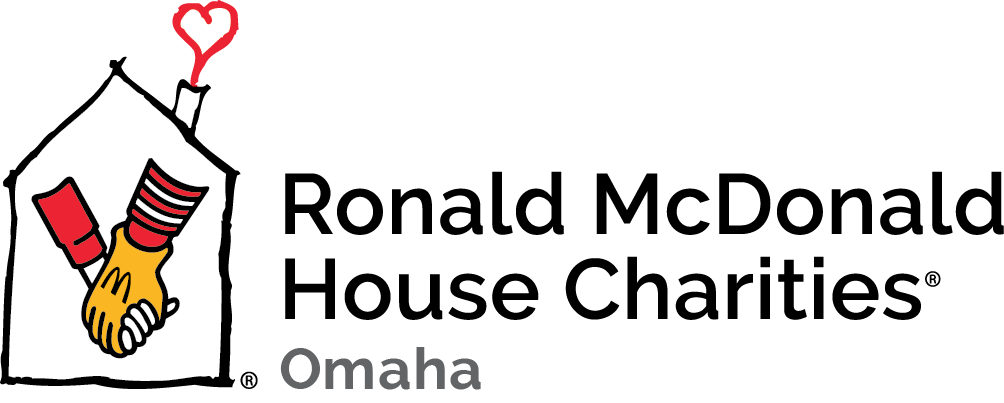‘A Pleasant Surprise’
Surprises.
In some contexts, they’re exciting and fun, like a birthday party or an extra McNugget in your McDonald’s bag.
Other surprises are less welcome. Like three McNuggets in your four-piece order.
When reality diverges from your expectations, it can be understandably jarring, doubly so for instances in which the surprises are life-altering. In those times, it helps to have a strong support system around you. But what do you do when the surprise arrives while you’re halfway across the country? Where do you turn for support when your support system is a time zone away?
Hannah and Josh Cline were happily expecting their first child in early 2023. They both grew up in Kearney, Nebraska, but had since moved to North Carolina, where they had adopted a dog named Colt. Hannah’s pregnancy was progressing normally, and the baby’s due date was still more than three months away, so when the opportunity for a family vacation arose, they jumped at it.
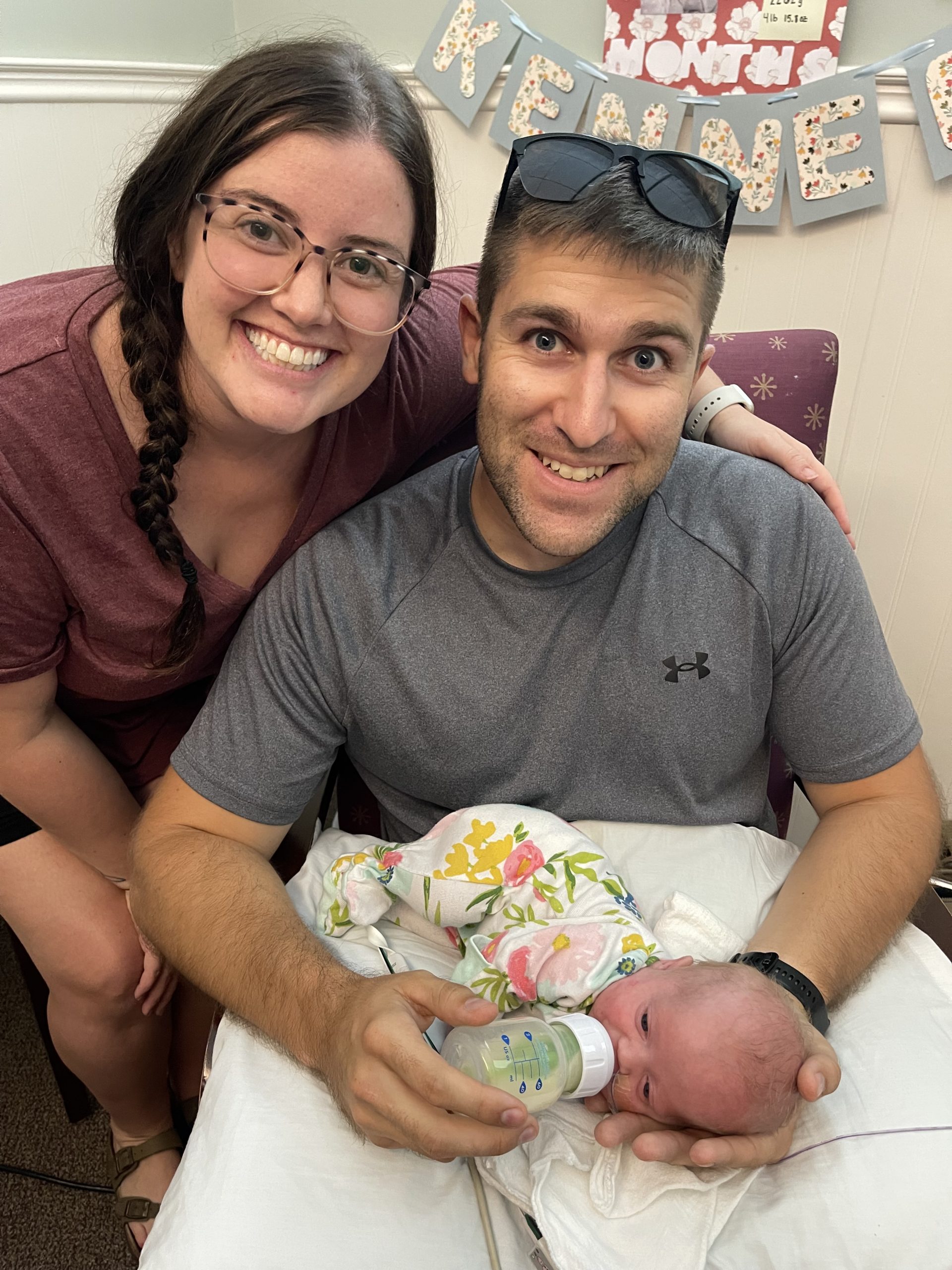
The family of two (plus a dog) drove more than 1,500 miles northwest, ready to spend two relaxing weeks with family in Kearney. A few days after arriving, Hannah went to a doctor in Kearney for a normal checkup. And at the doctor’s office, the nurse checked Hannah’s blood pressure, just as is normally done. Except this time, her blood pressure was not normal. It was quite high, and Hannah noticed a headache and ringing in her ears. She was diagnosed with preeclampsia, and her blood pressure was dangerously high, so the doctor said she would need to be transferred to Nebraska Medicine in Omaha.
Hannah was hopeful they could instead be transferred back home to North Carolina, but the doctor essentially told them they would be lucky if they could make it to Omaha before the baby would need to be delivered. “That’s kind of when the gravity of the situation set in. We’re just trying to not have a baby in the ambulance on the way.”
They were 22 hours from home, waiting in a hospital room for an ambulance to arrive and drive them 180 miles east. A two-week vacation suddenly became something entirely different.
Because Hannah was still just 28 weeks along, her doctors at Nebraska Medicine wanted to do all they could to delay the birth for eight more weeks to give both mom and baby the best chance of surviving without complications. Unfortunately, three days into their stay, Hannah’s blood pressure continued to rise, and the doctors could wait no longer. They performed an emergency caesarian section, and their baby girl, Kennedy, was born 12 weeks early, weighing one pound, 12 ounces.
Kennedy immediately needed help breathing with a ventilator, as her premature birth meant her body was not quite ready to thrive on its own. Thankfully, the medical team was able to stabilize her in the NICU, where she could grow.
Meanwhile, Josh and Hannah needed a place to stay. For the past several days, they had been sleeping in a hospital room, with Hannah in the bed and Josh using a pull-out couch. The severity of Hannah and Kennedy’s conditions also meant nurses needed to regularly check on them, which meant visits every hour for blood draws, stat checks, and the like.
“Not the most comfortable situation,” says Josh.
After Kennedy was born, a social worker at the hospital told them they had a room waiting for them at the Ronald McDonald House.
And how was that first night in their own private room, away from the beeps and buzzes of the hospital room?
“We slept amazingly,” Josh says with a big smile.
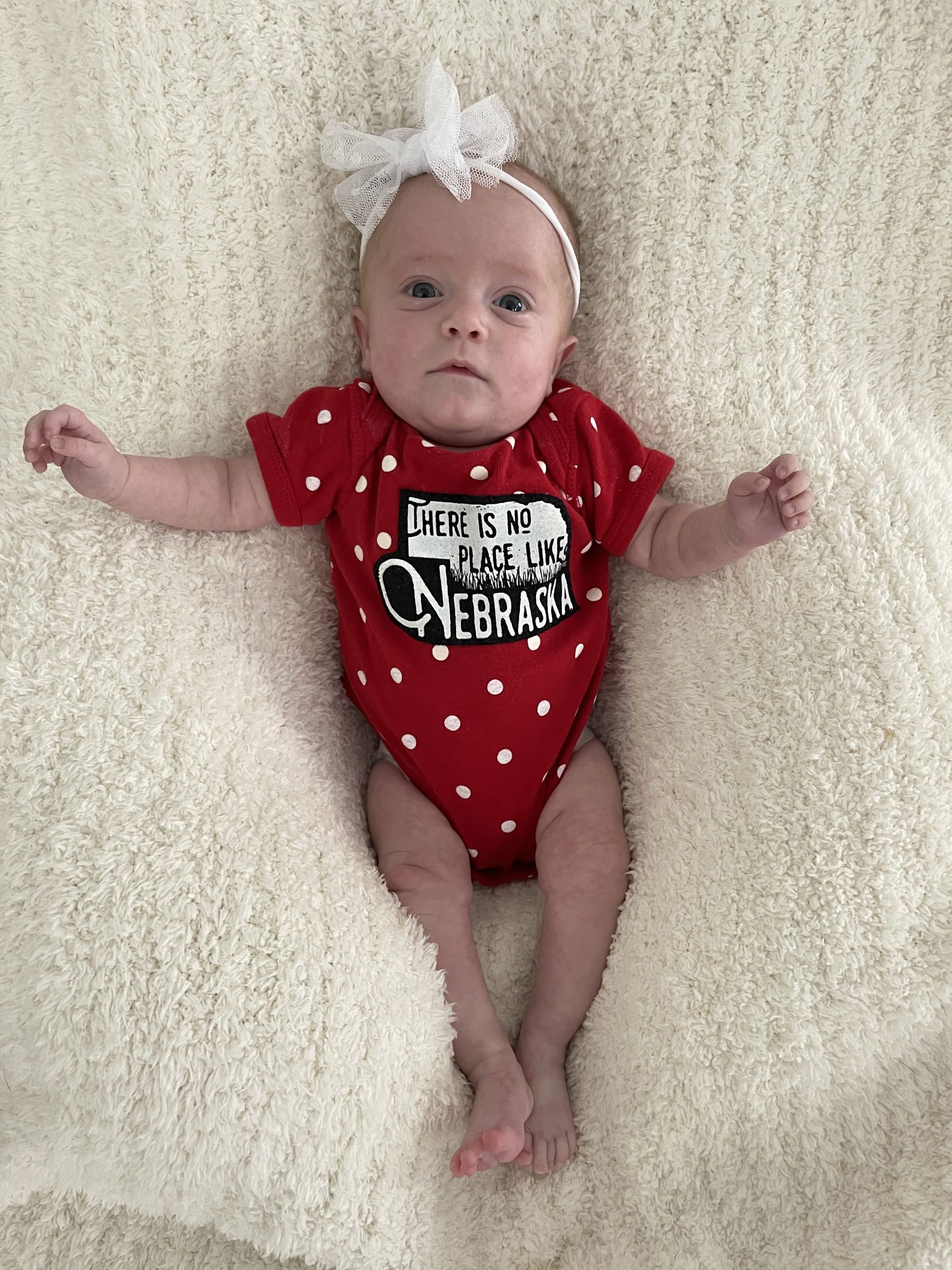
The cozy beds and quiet room were greatly appreciated, of course, but one of the most impactful parts of the House came in the form of meals prepared by community volunteers as part of the Meals That Heal program.
Josh says, “It’s something you don’t have to think about.” By taking that item off of their minds, Josh says he and Hannah could put all of their energy into focusing on the care of their daughter, especially while they’re in the hospital with her. “When we’re there, we’re there.”
That’s not to mention the increased amount of time they can be with Kennedy rather than buying groceries, cooking a meal, and cleaning up, as well as the cost savings of not having to eat out night after night.
They’re also quick to note that the volunteers consistently provide excellent company and high-quality options to eat. Josh notes he wasn’t totally sure what to expect, but “it’s always really good food. The volunteers are always friendly, they’re always smiling. It’s like a home cooked meal, and it’s just refreshing. We’ve been blown away.”
Just down the street at the hospital, Kennedy was also feeling the impact of nourishing food. In the span of two months, she was receiving enough calories through her feeding tube to go from less than two pounds to more than five-and-a-half pounds.
Josh and Hannah credit the excellent medical team at Nebraska Medicine for Kennedy’s progress, and they actually have grown quite close to the nurses who have helped her. Josh says, “The nurses have been amazing over there. We’ve gotten to know a couple of the nurses very well, we’ve laughed together, we’ve cried together. They’re almost like family.”
Kennedy’s growth was far from guaranteed, as she had a heart condition that essentially led to her heart pumping even faster than a baby’s heart typically pumps, which burned more calories, which made it more difficult for her to gain weight. Thankfully, the heart defect has begun to heal, so Kennedy’s body could retain the calories she was receiving instead of immediately burning them.
In addition to that growth, Kennedy’s lungs began working better, allowing her to breathe on her own, without the aid of any respiratory support. As Kennedy’s condition improved, so too did her parents’ ability to care for themselves. Instead of staying in the hospital room for the entire day and night with Kennedy stable and sleeping, Josh and Hannah were able to do things for themselves. They would occasionally go to a restaurant, or play a round of putt-putt golf, or go bowling.
Coming from a smaller town, the Clines didn’t expect to enjoy Omaha, thinking it was a bit too big and bustling. But even in the midst of all they were facing, Josh and Hannah found themselves actually enjoying all it had to offer.
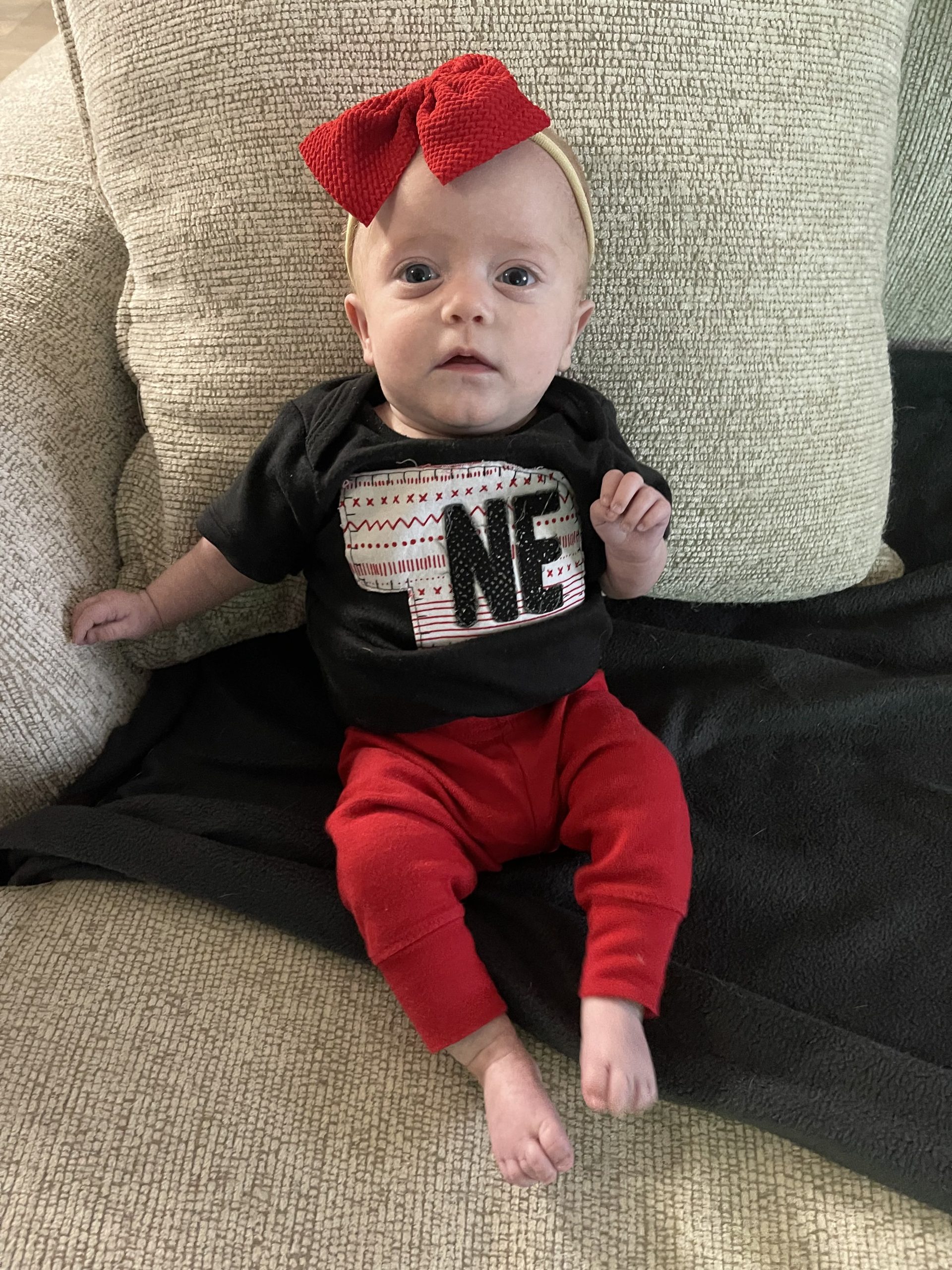 “Her being stable definitely allowed us to feel more comfortable going out and about. It just takes your mind off things,” Hannah says.
“Her being stable definitely allowed us to feel more comfortable going out and about. It just takes your mind off things,” Hannah says.
In situations like the Clines’, it’s common for parents to become so overwhelmed that they feel a sense of caregiver burnout, draining them emotionally and physically. Spending so much time in the hospital, constantly carrying that burden, it can be too much to handle, and makes it more difficult for them to truly be there for their child.
Kennedy’s improvement helped relieve that burden, and it didn’t hurt that Josh and Hannah weren’t doing this alone. At the House, they were able to get to know other families who were facing similar challenges with their own children, or who had previously been through it.
Josh says, “We get to hear their stories, and they can give us tips and tricks of how to get through it, things to understand about the NICU, treatments, what it’s going to be like for our child.” He adds that having those relationships has been “super beneficial.”
Oddly enough, the Clines being away from their home for all of this made it easier for their extended families to visit, too. Josh appreciated having a cozy environment to be for those visits. “[The House] is a place you can get away because, I mean, when you’re in the hospital, as nice as they try making it, you still feel like you’re in the hospital. Whereas here, it’s very warm, welcoming, natural lighting. It’s like a home-away-from-home situation.”
As the weeks passed, Kennedy continued to grow, and she was finally able to eat the majority of her calories by mouth instead of the feeding tube. She passed her hearing test. She rode in a car seat for 90 minutes without any effect on her breathing.
On August 7, Kennedy was discharged from the hospital and the Clines left for home as a family of three (plus a dog) for the first time. Beyond some minor monitoring of her heart and lungs, Kennedy’s prognosis is very good, all of which will be taken care of near their home in North Carolina.
The Clines likely won’t need to stay at RMHC in Omaha again, but they remain appreciative that they were supported for those 83 eye-opening days. And Josh says he’s thankful families like his have a place like this all year, saying, “When you’re at home, you don’t realize that this stuff is going on 24/7. Everyone’s story is different, and you never know what somebody’s going through until you’ve talked to them about it, or you’ve gone through it yourself.”
He and Hannah agree this experience was made significantly easier by being able to stay at the House. Hannah calls it “amazing,” and Josh concurs, adding, “It’s been a pleasant surprise.”
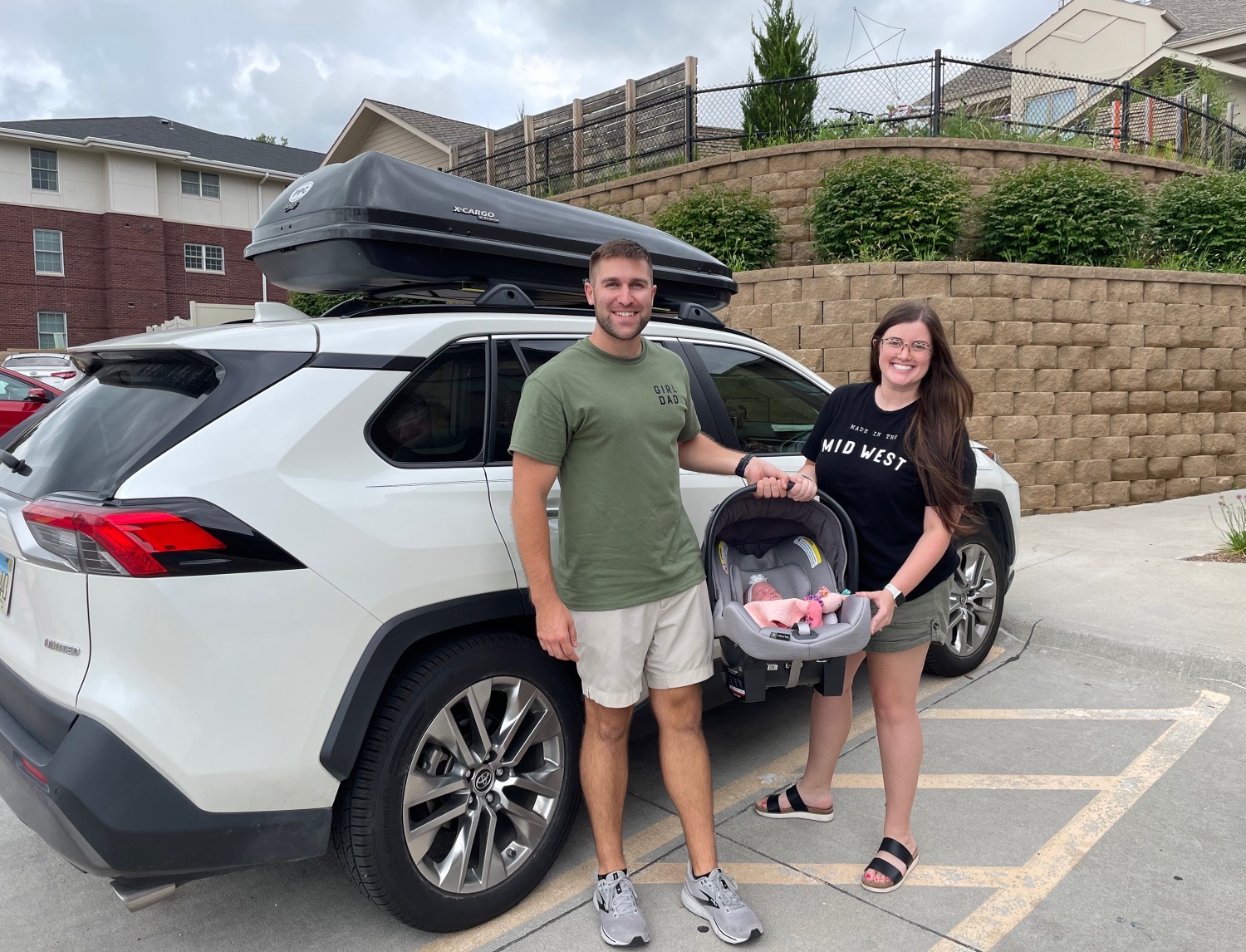
Will you consider a gift to ensure families like Kennedy’s are cared for during this holiday season?
